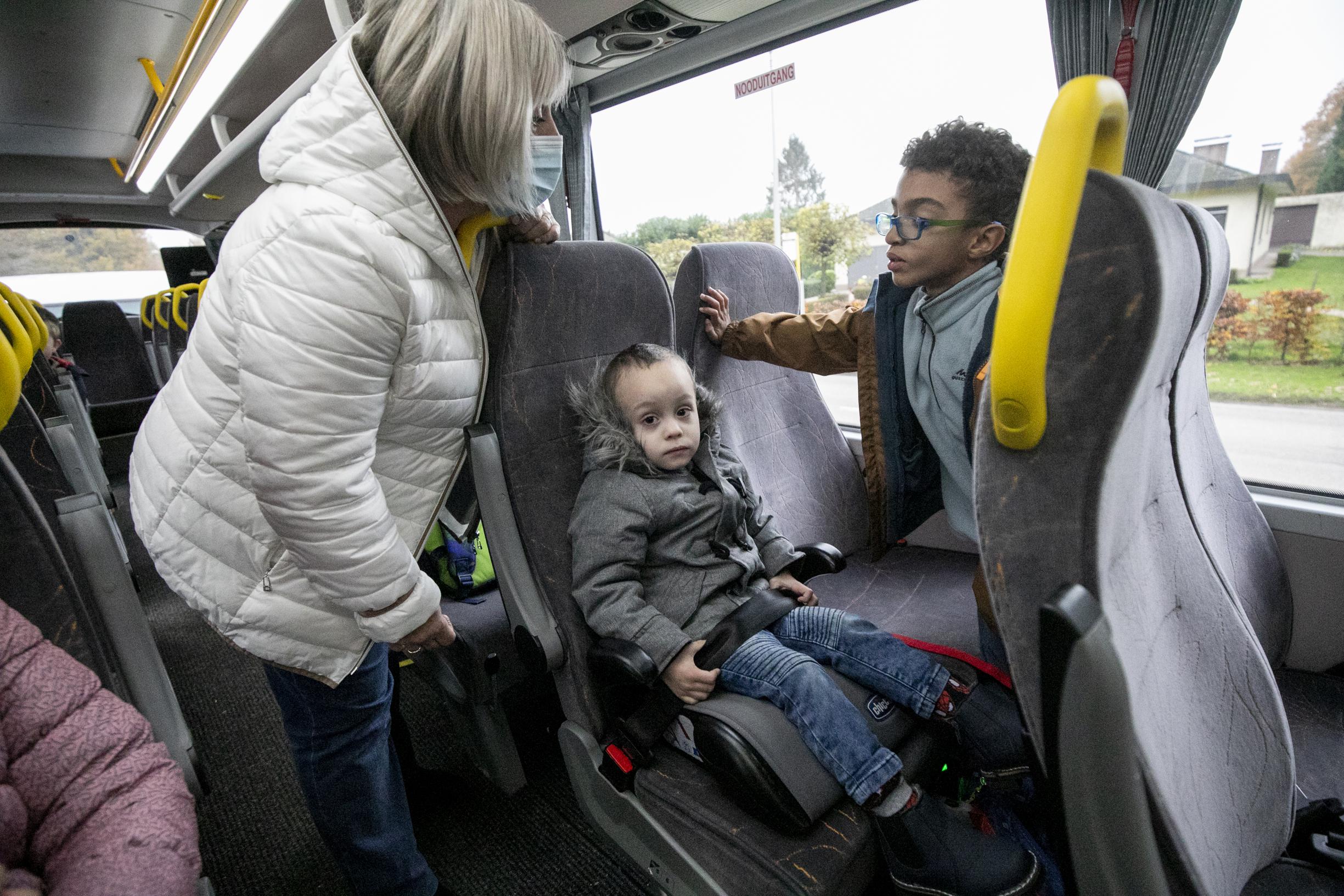Special education students often spend many hours every day on the bus to and from school. The Flemish government wants to deploy extra buses, minibuses and taxi services this year. “This is no longer acceptable.”
–
“My daughter has to be ready to take the bus at 5:45 am on September 1. She’s been on the road for four hours. When we heard that, she used all the dirty words she knows. She doesn’t want to go to school anymore.’ That’s what Marijke Haemels (39), mother of twelve-year-old Emma, said at the beginning of this school year (DS 31 August). Her story aroused many reactions, because it is not exceptional and has been dragging on for twenty years. More than 40,000 students depend on bus transport in special education.
A survey organized by Catholic education shows that in thirty percent of schools the first student gets on the bus before 6.15 am. One in five of those children who were picked up first spend more than two and a half hours on the bus. That makes a total of five hours a day. ‘This year the telephones about distressing situations are coming earlier and more frequently than ever,’ said Tom Vermeulen of Catholic Education Vlaanderen. He pointed to rising student numbers as an explanation, without the budgets for bus transport increasing with it. ‘That means there are more students for the same number of buses.’
The Flemish government reached an agreement this afternoon on additional financial resources to tackle the problem. Eleven million euros will be made available for this school year for the deployment of more buses, minibuses and taxi services, says Mobility Minister Lydia Peeters (Open VLD). ‘The students, the most vulnerable in our society, deserve more free time and less bus time.’
‘Not acceptable’
Transport company De Lijn will now start working on concrete mobility plans together with the schools. By the end of January next year, Peeters will come up with ‘structural solutions and a view of a future approach’.
Catholic Education Flanders will ‘follow closely’ the announced plans, says director-general Lieven Boeve. ‘We are pleased that work is being done on this problematic situation in the short and long term. What is being done to our most vulnerable students is no longer acceptable.’
– .


